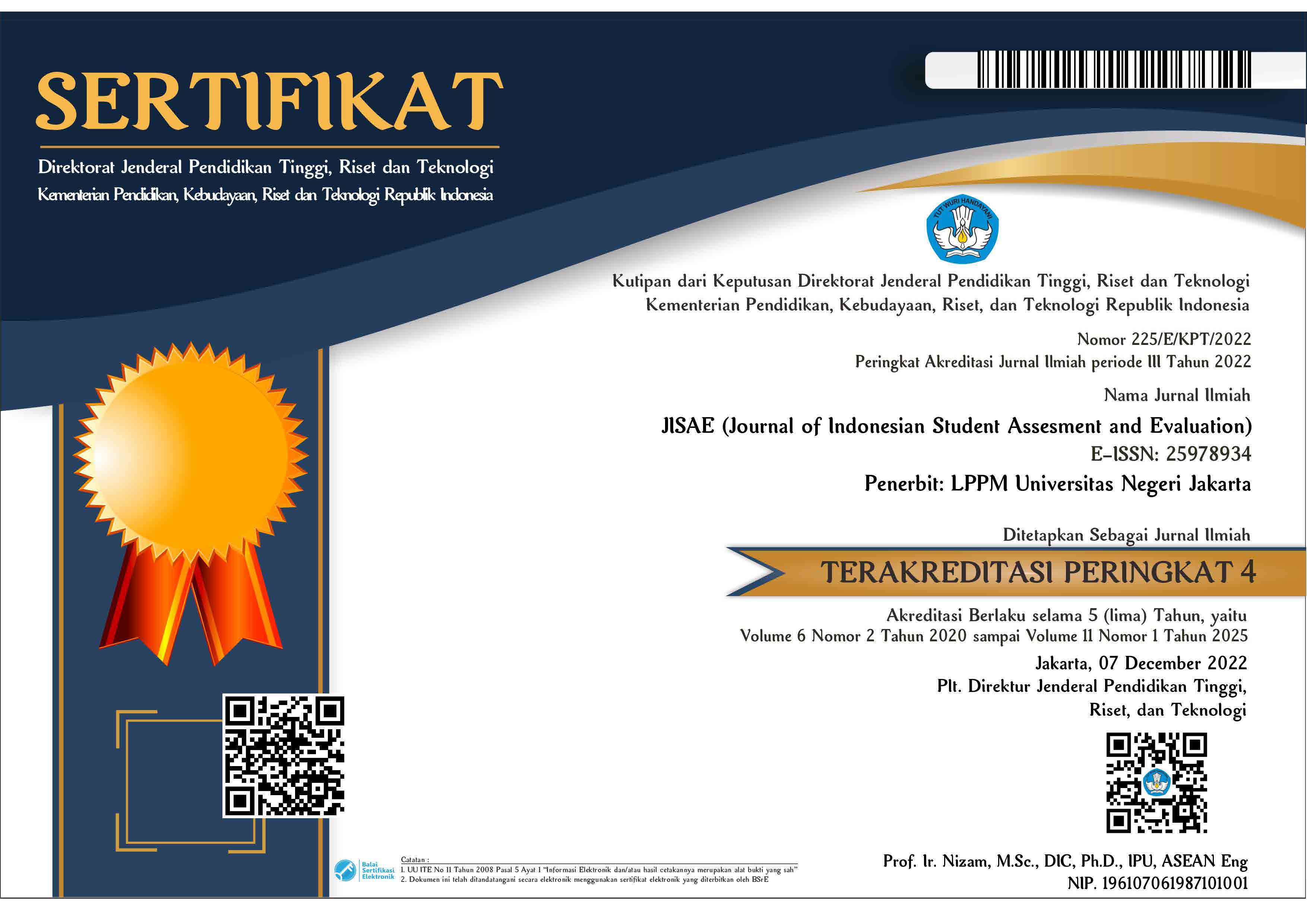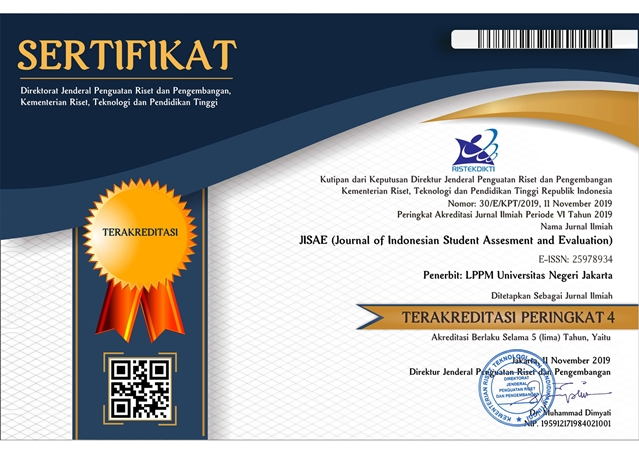Evaluating Inclusive Education Services In Islamic Education Institutions
DOI:
https://doi.org/10.21009/jisae.v10i1.43841Abstract
The aim of the study is to gather accurate information pertaining to the real-world conditions regarding the implementation of inclusive education and to unearth fundamental problems in providing inclusive education services in madrasas. The study employs a combination of quantitative and qualitative approaches and evaluates a sample of 50 madrasas, along with an additional 8 institutions selected for in-depth analysis. The evaluation findings indicate that, concerning context, the introduction of inclusive education in most madrasas satisfies the prerequisites for executing inclusive education, including conformity with government policy, community demand and the schools' capabilities. Nonetheless, there are various issues regarding input, comprising deficient facilities and infrastructure, inadequate funding, scarcity of specialised support teachers and inadequate curriculum development, among others. Regarding implementation, 59.57% of participants reported that madrasas have been able to carry out the process of incorporating inclusive education, albeit suboptimally. As for outcomes, academic performance among children with disabilities is already noteworthy.










